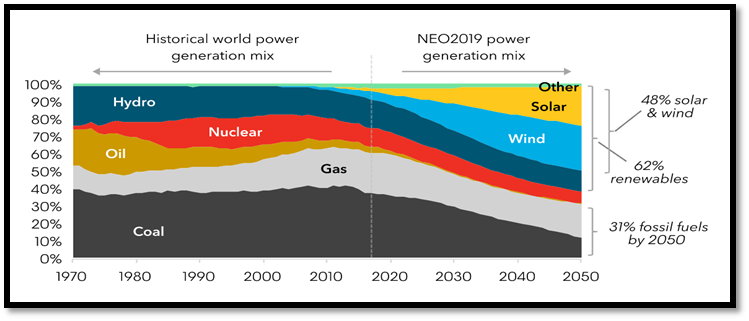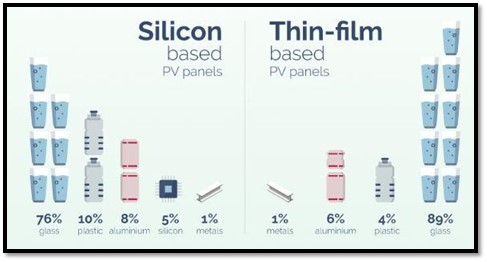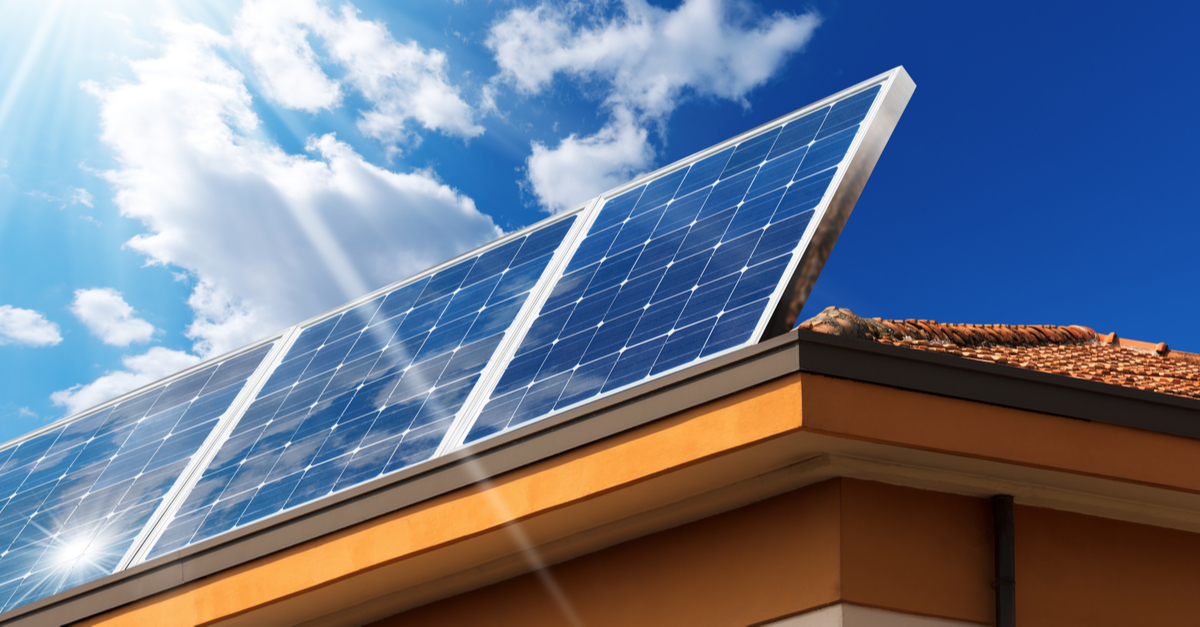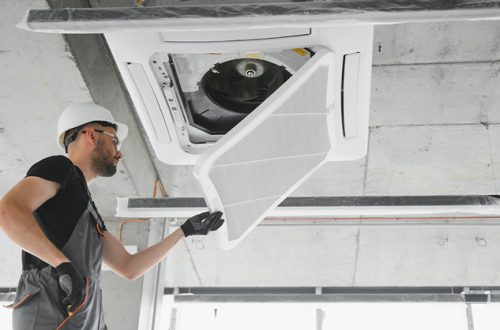Solar Energy In Context
In 2018, the future of solar markets was cast in uncertainty: America imposed Section 201 tariffs on all solar cell imports; China, the largest Photovoltaics (PV) producer, cut solar development subsidies; Japan cut feed-in tariffs meant to promote renewable energy development; and India pulled the plug on a 10 GW mega-tender. [1] Despite this, global solar market generation still managed to trend upwards, with 2019 being a record year of growth. [2] The International Energy agency expects Solar Photovoltaics to continue on this trajectory, owing to the Sustainable Development Goals (SDGs) that align with the United Nations Framework of Climate Change. Although PV currently provides 3% of the world’s energy, that figure is projected to be 15% by 2030, and 25% by 2050. [11]

Solar Panel Lifecycle Management
As with most hardware, a solar panel’s lifespan is finite. Typically, Ontario’s solar projects have a design service life of 25 years, falling in line with manufacturer warranties. Assuming a warranty period of 25 years, only 80% of a solar panel’s initial peak output capacity may be guaranteed, at expiry.[4]
Fortunately, a solar panel with degrading output can be salvaged. For instance, the materials found in silicon and thin-film based solar modules can be recycled; and other materials (e.g., glass, metals, plastics) can be recovered with the appropriate recycling procedures.[5]

Approaches to Decommissioning Solar Panels: at Home and Abroad
Canada’s regulations do not currently make the recycling of solar panels mandatory, nor do they provide guidelines for the reuse or disposal of panels that have reached the end of their lifespan. With the number of Canadian solar farms on this rise, we must bear in mind that there is still a real need for thoughtful approaches to their eventual decommissioning. Thankfully, countries with more mature solar markets have already begun to address this concern locally.
United States
In the United States, solar accounts for roughly 2% of total energy production. Although solar panel recycling is not a widespread practice, some US-based manufacturers, such as Sunpower and First Solar, operate global recycling programs.[6] [7] And, in 2017, Washington became the first state to pass a solar product stewardship law, requiring manufacturers to finance and manage solar unit recycling programs.[8]
Australia
In Australia, solar accounts for roughly 5% of total energy production. Broadly speaking, two means of solar panel recycling are available:
- Local e-waste disposal centres – Aluminum frames and junction boxes are salvaged, although the management of the panels themselves are stored indefinitely. This solution is more applicable to those managing a smaller quantity. [9]
- Reclaim PV Recycling & PV Industries – Two official solar panel recycling companies Reclaim PV Recycling recycles up to 90% of a panel’s entirety, with goals to improve their processes to be able to recycle 100%.[10]
EU Countries
In the European Union, PV waste is regulated by the Waste Electrical and Electronic Equipment (WEEE) Directive, which promotes waste reduction during the process of manufacturing solar products and the reuse of those products after they have entered European markets.[5]. Manufacturers are also supported by PV Cycle, a non-profit organization that develops custom waste management solutions for over 70% of EU-based PV manufacturers. PV Cycle lends support in:
- the registration and declaration of waste products that are sold to market;
- defining collection and return processes for products, and administering them in financially responsible ways;
- supplying appropriate messaging regarding disposal and hazardous materials on packaging; and
- ensuring that there exists an authorized representative to support consumers, who is well-versed in a manufacturer’s legal obligations
As a result, EU-based manufacturers remain committed to approaching product design, fabrication, marketing, and support in a holistic way; and EU-based waste management facilities are incentivized to define strategies for the uptake of materials related to these processes.
Looking Forward
Strategies deployed by other countries can provide insight into what may influence PV recycling systems at home, which presents an opportunity for Canada to proactively address the eventual influx of decommissioned solar panels.
Engineers believe that both the Ontario and federal governments should collaborate to develop a strategy that ensures solar panels are properly recycled.
This blog was contributed by OSPE Environment Task Force Member, Caroline Wojtyla, B.Eng.





Comment (1)
It’s great to see OSPE weigh in on the importance of recycling solar panels in Canada. At SUNSET Renewable Asset Management Inc., we have taken on this challenge and are offering Ontario and elsewhere in Canada sustainable decommissioning and end-of-life solutions for the renewable energy industry. Our focus is on solar, wind, and energy storage equipment processing and decommissioning services. Our goal is to divert rejected, obsolete, or damaged renewables equipment away from landfills and to introduce the reclaimed equipment and materials into a circular economy. We strive to advocate for government to take on more responsibility, and to integrate with any applicable regional/government programs that may become available as part of a collaborative, holistic, and systematic approach to sustainability.
Please refer to our website and LinkedIn for more information or to contact us for renewables recycling purposes, or to connect with us regarding requests for reclaimed material to use as sustainable feedstock for your product.
https://sunsetrenewables.com/
https://www.linkedin.com/company/sunsetrenewables/
Leave a Comment